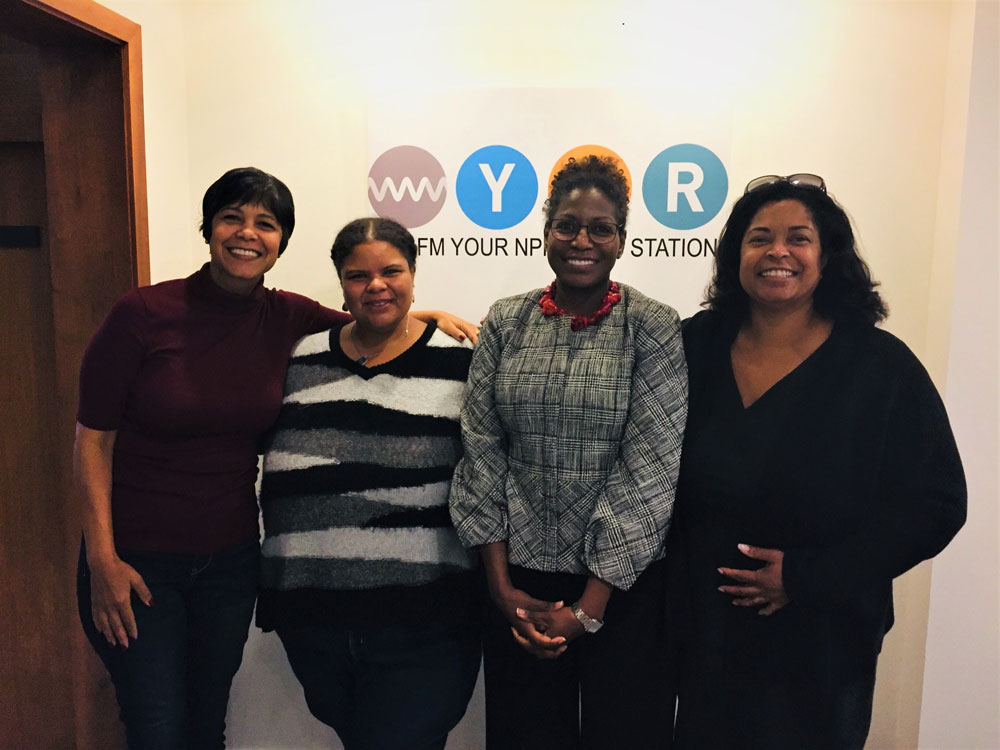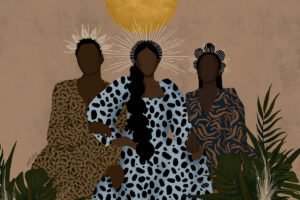
Whether through giving circles, mobile apps, crowdfunding, or impact investing, Black women are redefining what it means to be philanthropists. That’s according to a 2019 study by the Women’s Philanthropy Institute that looked at the intersection of race, gender and charity.
“I think Black women do philanthropy differently,” Jocelyn Harmon (@jocelynharmon) says. “We come at things with a spirit of service often, and we give to causes that really need investment.”
Harmon is co-founder and president of BlackHer, an online platform that educates and inspires Black women to act for change. This year, she released the Black Woman’s Guide to Philanthropy to affirm that black women are indeed philanthropists, and to recognize Black women who are doing that work. In our latest Tiny Spark podcast, Amy Costello sits down with Harmon and three of the women featured in the guide to discuss how their race and gender affects their work.
“One of the things that’s so wonderful about Black women is we are so resourceful,” says Lisa Hall (@LisaGreenHall), an expert in impact investing and a senior fellow at the Beeck Center for Social Impact and Innovation at Georgetown University. “We can take practically anything and make it really beautiful. And I think that that is true in our philanthropy.”
Sign up for our free newsletters
Subscribe to NPQ's newsletters to have our top stories delivered directly to your inbox.
By signing up, you agree to our privacy policy and terms of use, and to receive messages from NPQ and our partners.
Earlier this year, the nonprofit Building Movement Project interviewed more than 4,000 nonprofit staff for a study called Race to Lead: Women of Color in the Nonprofit Sector. Among respondents, women of color with a master’s degree or above were less likely to hold senior leadership positions compared to whites. And Black women in particular were most likely to respond that race had a negative impact on their career advancement.
Lisa Hamilton (@lhamilton_aecf), president and CEO of the Annie E. Casey Foundation, came to the role from the corporate sector and believes her background helps her in the industry. “My life is really about bridge building,” she says. “I think that’s what philanthropy needs. Philanthropy needs leaders that aren’t wedded to problem-solving existing in one domain or not appreciating what everybody needs to bring to the table in order to address issues.”
We also spoke to Ashindi Maxton (@ashindi), who co-directs the Donors of Color Network, which is a six-month-old network of high-net-worth men and women who are working on racial equity and systemic change.
“I have given the advice to at least one place, don’t diversify, don’t do it, because you’re not ready,” she tells us. “Because you’ll bring people into the room, a room that’s not ready for them, and then you’ll traumatize those people and you’ll waste your time and resources.”
Maxton ends with some advice for listeners of the Tiny Spark podcast. “Take a risk,” she says. “Invest in the leadership of some people of color and watch what happens, give agency, give freedom, give resources. And I think you can do some transformative things.”
Additional Resources:
- BlackHer: The Black Woman’s Guide To Philanthropy
- Ashindi Maxton: “Diversity is Inefficient”
- Lilly Family School of Philanthropy: Women Give 2019: Gender and Giving Across Communities of Color
- Building Movement Project: Race to Lead: Women of Color in the Nonprofit Sector
- Tiny Spark: “‘Rage’ or Resolve? Women Are Giving More in 2018”












